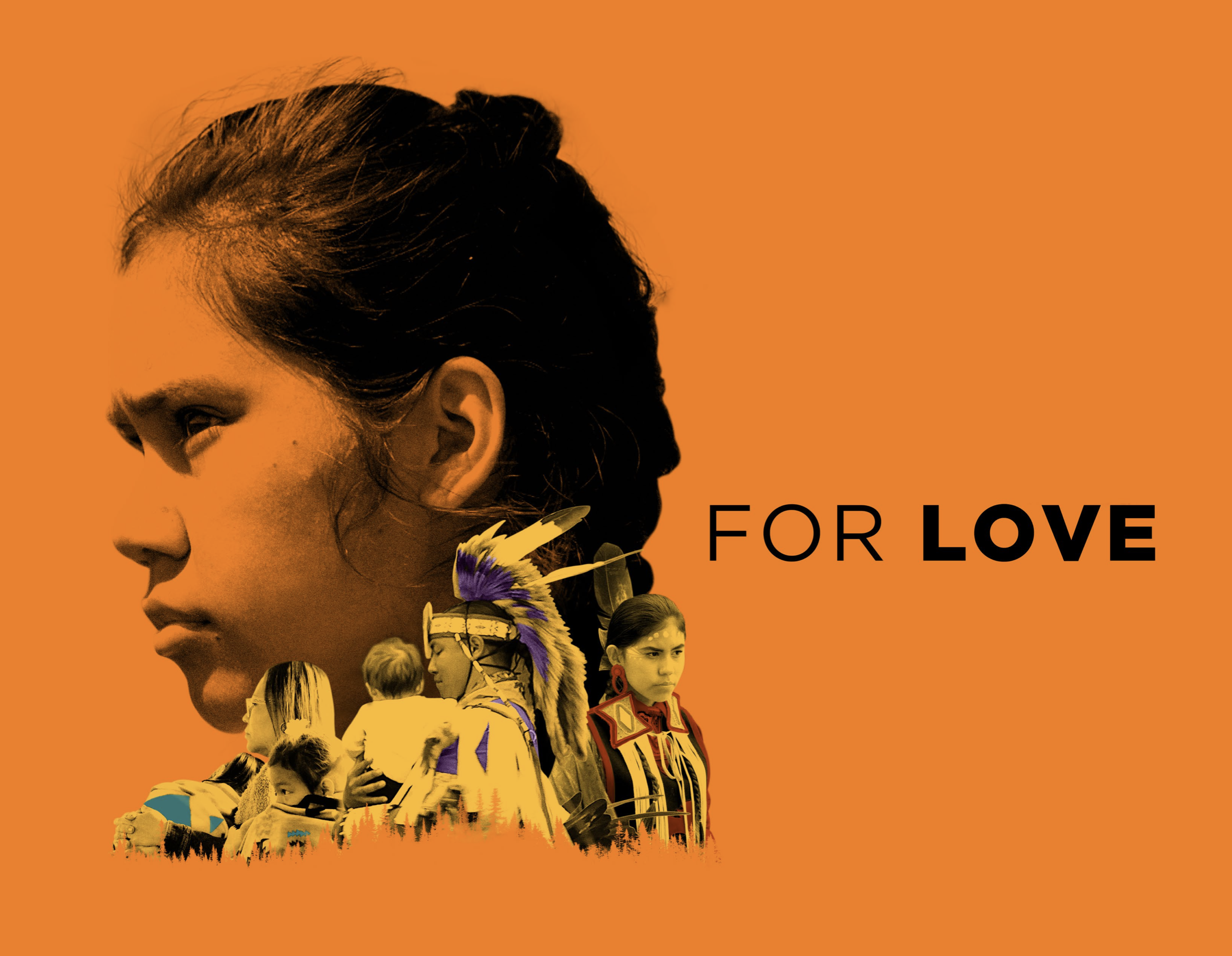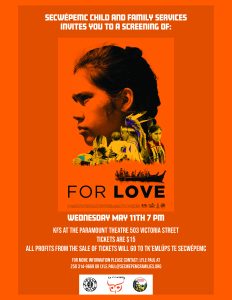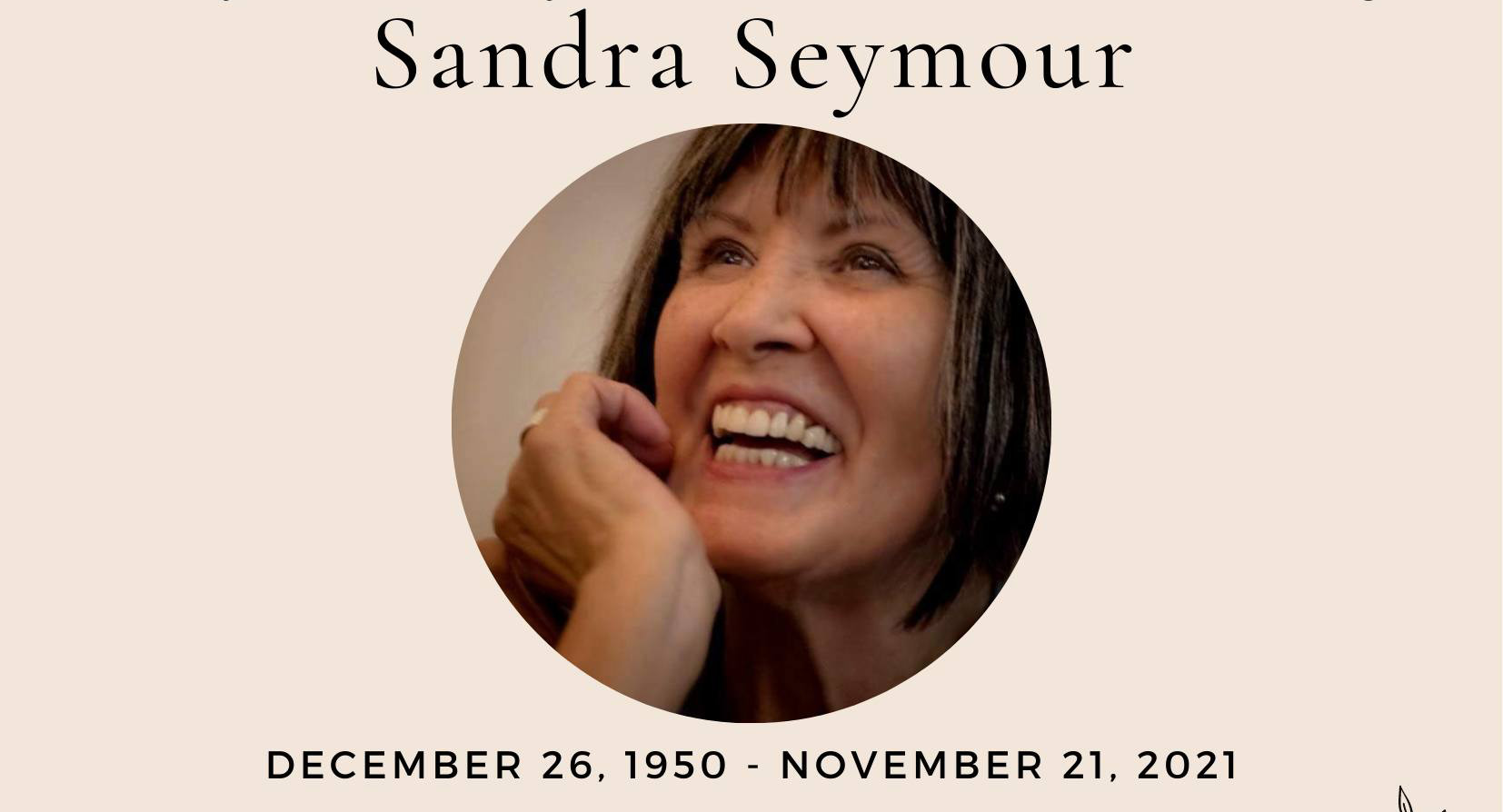Indigenous adults with intellectual and developmental disabilities in the Kamloops, or Secwépemc nation area, can now receive support and community inclusion services directly from an established Indigenous service provider, after a collaboration agreement was signed September 15, 2023.
The Memorandum of Understanding is between Secwépemc Child & Family Services Agency (SCFSA), a provider of services to urban Indigenous individuals, representing seven Indigenous bands in the Kamloops area, and Community Living BC (CLBC), a provincial crown agency that funds services for adults with intellectual disabilities. The agreement was celebrated in a ceremony that involved SCFSA dignitaries, CLBC leadership and the Minister Sheila Malcolmson, Minister of Social Development and Poverty Reduction. The ceremony was witnessed by Band Chiefs and council and community members, Elders, youths, families, SCFSA and CLBC staff.
“SCFSA is looking forward to this collaboration with CLBC, which will create Secwépemc-based, community-inclusion programs that serve our Secwépemc communities and urban Indigenous clients,” said Marshall Gonzales, SCFSA Board President.
“We are always looking to find new ways to meet the needs of the communities we serve and to better support clients with diverse abilities, and this agreement ensures that that they will be able to continue to access services they need, in the communities where they live, when they age out of the system, maintaining that vital connection to culture, community and family.”
“This agreement is important because it demonstrates how we can collaborate with Indigenous partners to create culturally appropriate relationships,” said Ross Chilton, CEO of Community Living BC. “At CLBC we’ve been building toward this milestone for years, by growing our Indigenous Relations team, and working with our Indigenous Advisory Committee and Elders Advisory Council to acknowledge the harms of our colonial past and work towards advancing reconciliation. Now we are partnering with SCFSA to build capacity for the Secwépemc nation to be self-determining over their programs, services, and policies.
The unique agreement ensures that each of the seven bands will have jurisdiction over how they want to receive CLBC funded services through SCFSA. The agency, a provincially delegated Indigenous Child & Family Service Agency, already provides full child protection, cultural, and prevention services for Indigenous children and youth in the area.
“We’re working to clear the path to remove barriers for people with disabilities”, said Sheila Malcolmson, Minister of Social Development and Poverty Reduction. Her ministry oversees CLBC, which is providing funding initially for five people with complex needs, who have recently become adults. “Indigenous people with intellectual and developmental disabilities in Kamloops can now stay in their own home communities, supported and surrounded by Secwépemc culture and teachings.” Minister Malcolmson also pointed out that this new agreement honours the government’s commitment under the Declaration on the Rights of Indigenous People Act.
The MOU will be supported through an ongoing monthly partnership committee made up of CLBC and SCFSA representatives which will oversee implementation, provide mentorship, develop policies and processes, and support conflict resolution. CLBC’s Indigenous Relations team will lead this work for CLBC, while regional operations staff will provide support for services and refer Indigenous individuals to SCFSA.
The value of the initial contract between CLBC and SCFSA is approximately $512,000.00 annually. This is expected to grow as more Indigenous adults, including members of the seven bands, and non-Metis Indigenous urban individuals living within this territory, opt to receive services from SCFSA. Five people have already begun receiving services, thanks to the agreement which is now in place.

The Secwépemc Child and Family Services Agency (SCFSA) is hosting a screening of the film “For Love” at the Paramount in Kamloops on Wednesday, May 11, at 7 p.m.

Tickets will be $15, with $1 going to Kamloops Film Society and all subsequent profits going to Tk’emlúps te Secwépemc — Le Estcwicwéy (The Missing).
Tickets will be available at the door and online: https://www.thekfs.ca/movie/6512/
The event will feature appearances by director, co-writer and co-producer Matt Smiley, as well as co-writer and co-producer Mary Teegee.
The film, which is narrated by Shania Twain, exposes the link between residential schools and the 29,000 Indigenous children and youth in Canada’s child welfare system.
“The horrors of residential schools are finally starting to be understood by non-Indigenous Canadians and Americans,” says producer Mary Teegee. “I wanted this movie to create awareness about the generational trauma caused by residential schools. But it also celebrates the resilience of our people, and shows how communities across the country are rebuilding family connections and rich cultures.”
TRAILER: https://www.youtube.com/watch?v=Lnjib-DAfW8
MEDIA AVAILABILITY: Both Matt Smiley (Matt@smileysodapop.com) and Mary Teegee (mary@csfs.org) will be available for interviews before the screening.
The Secwépemc Child and Family Services Agency is pleased to hear news that the federal government has made official an agreement that sets aside $40 billion for Indigenous child welfare and to abide by a Canadian Human Rights Tribunal ruling.
The CHRT ruling requires the government to pay up to $40,000 to Indigenous children and their families who were taken into foster care because of an underfunded on-reserve welfare system, retroactive to 2006. This compensation represents half of the $40 billion.
Parties have until March 31 to finalize the non-binding agreement.
Elements of the agreement include:
“This historic agreement, while non-binding, is one step forward on the long road ahead in reforming the child welfare system and in ensuring substantive equity to all children and families impacted by this system,” says Yvonne Hare, SCFSA Executive Director. “Now we have to see if the federal government will make good on its promises.”
The SCFSA, as always, gives much appreciation to Cindy Blackstock, the First Nations Child and Family Caring Society, and the Assembly of First Nations for their efforts in pressuring the federal government to honour its commitment to the Canadian Human Rights Tribunal ruling.

The Secwépemc Child and Family Services Agency is applauding news that the Canadian government will set aside $40 billion for Indigenous child welfare and abide by the Canadian Human Rights Tribunal ruling.
The ruling requires the government to pay up to $40,000 to Indigenous children and their families who were taken into foster care as a result of an underfunded on-reserve welfare system. It is retroactive to 2006.
The money is to be distributed over the next five years starting with $16 billion by the end of this year.
The other half of the money will go toward reforming the child welfare system.
“We are relieved that the federal government has decided to come to the table and work towards a solution and we hope it will abandon its efforts to continue fighting children in court,” says Yvonne Hare, SCFSA Executive Director. “While victims of historical trauma can never fully heal, this is a good first step in addressing the wrongs that were done to the children who suffered at the hands of a cruel and racist system.”
The SCFSA gives much appreciation to Cindy Blackstock, the First Nations Child and Family Caring Society, and the Assembly of First Nations for their efforts in pressuring the federal government to honour its commitment to the Canadian Human Rights Tribunal ruling.
—
ABOUT US: The Secwépemc Child and Family Services Agency is an Indigenous-run child, youth and family agency that works in collaboration with Secwépemc communities to deliver family services that strengthen the family unit and uphold Secwépemc laws. Our work is guided by Secwépemc values.
BACKGROUNDER: Canadian Human Rights Tribunal Information Sheet
SUMMARY/KEY POINTS
BACKGROUND
The SCFSA Strategic plan was completed by our board members representing their respective communities to guide our work over the next 5 years. Strategic Priority #2: Excellence identifies the development of a service delivery framework.
Timeline: February 1, 2021 – March 31, 2022
PROJECT MEMBERS
WHAT ARE WE DEVELOPING?
PROJECT COMPONENTS
Guidance and Direction
Community Engagement
Gathering the Berries – Literature Review
Secwépemc Art Book – “What is in my Heart”

We at the Secwépemc Child and Family Services Agency are saddened to hear about the passing of founding member and former longtime Board member Sandra Seymour. A leader for SCFSA for well over a decade on our board, Sandra made incredible contributions over the years to the children, families, and communities we serve.
As a social worker, Sandra had the idea to create an agency that would assist in protecting Indigenous children within the Secwépemc Nation. She envisioned that this agency would be led by the communities of the Secwépemc Nation, rather than an agency run by government. Sandra’s vision led to the inception of the SCFSA in 1999.
Sandra later sat as President on the SCFSA Board. As a member of Tk’emlúps te Secwépemc, she also served as Social Development Manager for TteS.
Sandra will be greatly missed and we will always keep her in the front of our minds as she joins her Secwépemc ancestors who guide our work at SCFSA.

The Secwépemc Child and Family Servies Agency holds our hands up to T’kemlups te Secwépemc, Kukpi7 Rosanne Casimir, newly elected AFN National Chief RoseAnne Archibald and the brave Elders who spoke today at a presentation providing further information about the unmarked graves of 215 children whose remains were found on the grounds of the former Kamloops Indian Residential School (KIRS).
We echo the calls from Kukpi7 Casimir for the federal and provincial governments to do more to help identify these sacred little bundles who were the target of genocide and assimilation, as well as the many other missing children who never made it home from Residential Schools across Canada.
There can be no reconciliation without truth, and until the full scope of these atrocities is known, until these children are “brought home,” we cannot move on to the healing that Indigenous people in this country so desperately need.
As an agency we strive to live up to the words of Elder Evelyn Camille, a Residential School survivor who spoke so eloquently and frankly about her experiences during the presentation.
“The way of life of our people and our sacred ceremonies must not be forgotten,” Evelyn said when talking about the efforts of Residential Schools to rid Indigenous children of their language, culture and traditions.
This responsibility is a sacred duty, and it drives our work in helping our communities and their children and families revitalize traditional family systems, preserve families and ensure that they maintain that vital connection to culture, community and family.
We know that when First Nations have sovereignty over their children and are properly resourced, the children do better. This is why Elder Evelyn emphasized that “we have to be responsible for our children,” as only through ensuring that our children are cared for our way can we hope to offer a better future for our families and children.
To help T’kemlups te Secwépemc in its efforts to further investigate and honour the 215, please go to tkemlups.ca/

We continue to stand in grief with Tk’emlúps te Secwépemc and all the families of the 215 sacred children whose remains were found last week. We also continue to honour those sweet ancestors and uphold Tk’emlúps te Secwépemc for holding this sacred space for these sacred children.
The truth of all the stories that we have heard over the years as Indigenous people has finally made its way into the light. We hope that this moment will trigger truth-telling and the healing that our communities have been working towards for all these years.
Our wise elders tell us that this is a timely finding and a sign that we are ready as a people and as a society to come to terms with the harsh reality of residential schools. Reconciliation can only happen once the truth is told and accepted for what it is.
We would also like to hold our hands up and acknowledge the hard work done by all the volunteers and local restaurants (Moon Wok and Valhalla Smoke House) who kept the Flame Keepers fed this past weekend at Tk’emlups te Secwépemc.

It is with a heavy heart that we are learning about the discovery on the former Kamloops Residential School grounds of the remains of 215 children who were students of the Residential School.
At 11 a.m. this morning we urge everyone, wherever they are, to pray, sing or drum — in backyards, in offices, in parking lots— as a way to honour these 215 children as well as our ancestors who died as a result of Residential Schools, and to support the healing of those who are still impacted by the truth of our history.
These undocumented deaths are part of the Residential Schools’ dark and brutal legacy of Indigenous children who were sent to these schools but who were never returned to their home communities. To learn more about the Truth and Reconciliation Commission’s Missing Indigenous Children Project, go to http://www.trc.ca/events-and-projects/missing-children-project.html
Counselling support is available 24/7 by calling the Indian Residential School Survivors Society at 1.800.721.0066.